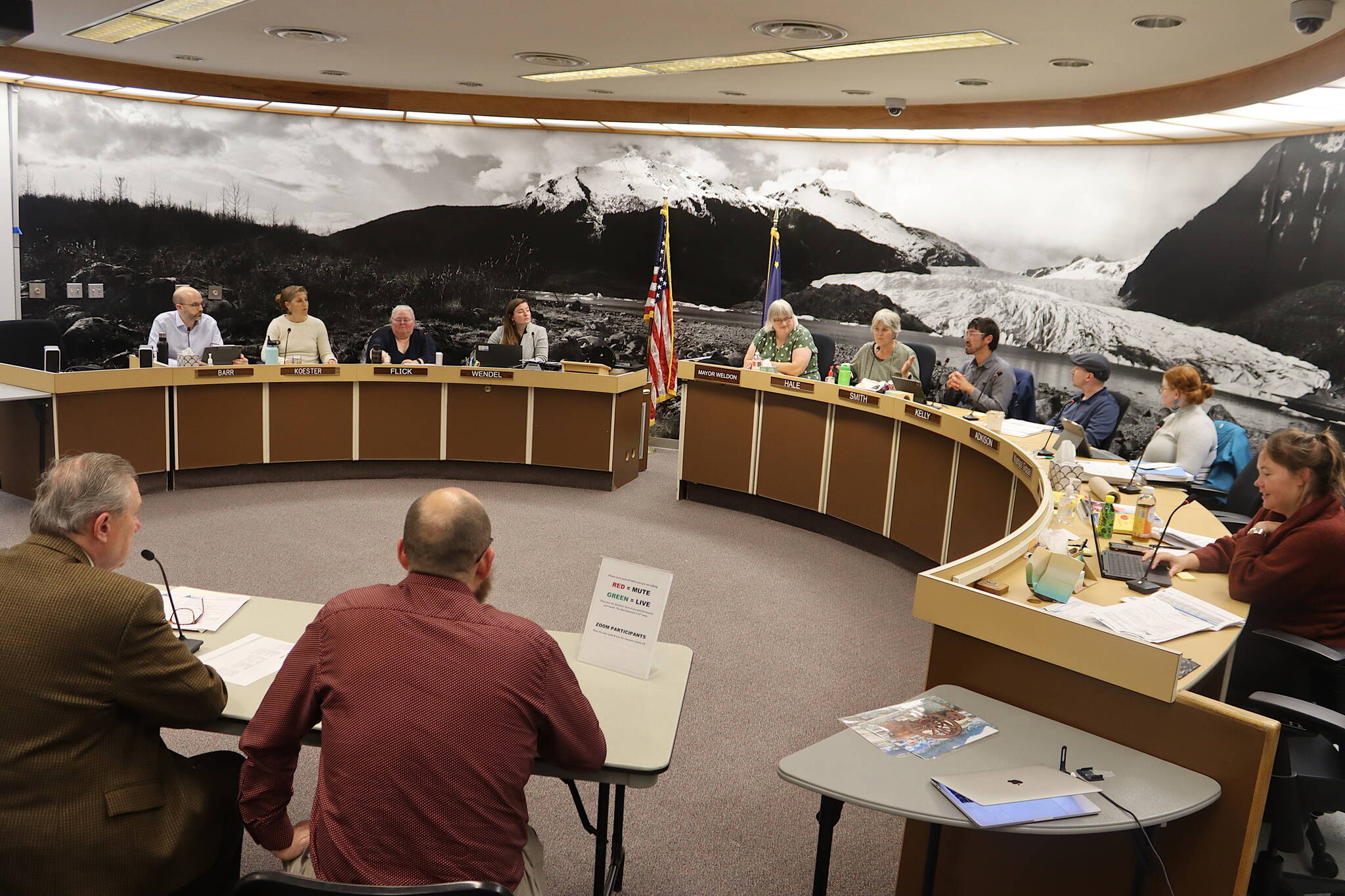Funding to allow Bartlett Regional Hospital to continue hospice and home health services, and Rainforest Recovery Center’s substance abuse programs to continue through a local nonprofit organization, got preliminary approval from Juneau Assembly members during a meeting of their Finance Committee on Wednesday night.
The funding is intended to help keep the programs going for the fiscal year that ends next June 30 as Bartlett works to overcome an ongoing budget shortfall that leaders earlier this year said was resulting in the loss of $1 million a month and the hospital running out of money within three years. Among the proposed remedies was the elimination or reducing six “non-core” programs, including the three considered by Assembly members Wednesday.
A key component of Wednesday night’s actions is Gastineau Human Services expanding its substance abuse treatment program in collaboration with the city-owned hospital to ensure the continuation of Rainforest Recovery’s services, although the nonprofit organization’s program is “low-intensity” residential care rather than the hospital’s “high-intensity” care.
Gastineau Human Services is offering to expand the 19-bed inpatient program it started last year by eight beds, said Jonathan Swinton, the organization’s executive director. The expansion provides only half the beds Rainforest Recovery is licensed for, “but according to (the hospital’s) data about half of those people are coming from other parts of the state for more intense issues.”
“We would prioritize the people who are local,” while serving as a referral resource for out-of-town people as well as those needing “high-intensity” care, he said.
The difference between the two levels of care is “additional medical supervision and more hours of structured programming” for high-intensity programs, according to a summary by the city manager’s office.
Allocating $500,000 for the collaborative rehabilitation program got the preliminary approval of Assembly members by a 6-1 committee vote, although the full Assembly will need to approve an ordinance authorizing the funding at an upcoming regular meeting that will include the opportunity for public comment. Bartlett, in a previous meeting, had requested $1.76 million from the city to continue operating Rainforest Recovery at the hospital.
The opposing vote was cast by Alicia Hughes-Skandijs, who said “I want to know it is truly shored up and not just in a stopgap way,” while Wade Bryson and ‘Waahlaal Gidaag Barbara Blake were absent.
An amendment to increase the amount to $1 million was proposed by Assembly member Christine Woll, noting the program is undergoing a significant operational shift and “I think the more resources we can commit to it the easier it’s going to be for us to get the outcome that we want.” The proposal failed to get enough support from other members, however, with some expressing concern about the city’s current fund balance of about $5.6 million being too low for comfort — especially given what are expected to be major repair and remediation expenses following last month’s record flooding from Suicide Basin.
“If they want more funds they can come back,” Assembly member Greg Smith said.
Deputy Mayor Michelle Bonnet Hale said that, based on the current program, about $688,000 of a $1 million allocation would be used to treat Juneau residents, and due to the city’s limited cash balance the priority should indeed be locals needing help.
Hale also objected to a motion by Woll to include the funding by default in next year’s budget, but it passed 6-1 as Woll described it as a “placeholder” that shows the Assembly is committed to continuing the programs while still being able to modify the amount during next year’s budget process if warranted.
Similar thoughts were expressed about providing $386,000 in general funds to continue hospice and home care services at Bartlett. Hale successfully introduced an amendment that will provide $200,000 in general funds and $186,000 from the hospital’s fund balance if the full Assembly approves the necessary ordinance.
“I know Bartlett is working very hard right now to bring hospice and home health (to balance) revenues and costs, and I think part of my reasoning is knowing they’re doing that and they’re on that trajectory now,” she said. “But in part I am also extremely leery of spending our own general fund given the situation that we’re in–(with) a lot of new extremely demanding things on horizon” — a reference to the upcoming need for flood-related funding.
Bartlett’s leaders are proposing a five-year time frame to make hospice and home health programs self-sufficient, and anticipate needing $1.9 million from the city during that time, according to a memo by city administrative leaders presented to Assembly members.
“This may be overstated given the path forward towards fiscal sustainability for these programs,” the memo notes.
A bookkeeping measure to increase the city’s cash balance was introduced by Woll, which if adopted by the full Assembly will shift the source of $505,000 approved at an Aug. 19 meeting for emergency flooding measures from the general fund to the city’s restricted budget reserve. The city passed $1.055 million of total emergency funding, but the funding that was shifted to the reserve has a “very high” chance of being reimbursed to the city by the state and/or federal governments, according to city Finance Director Angie Flick.
The three program discussed by Assembly members on Wednesday are among the six “non-core” services targeted for cuts or reductions by Bartlett leaders. The other three are adolescent crisis stabilization which was closed in July; Applied Behavior Analysis (ABA) Therapy for people ages 2-21 diagnosed with autism, which has been closed since the two program providers at the hospital resigned to offer the services privately; and the Bartlett Outpatient Psychiatric Services (BOPS), which provides psychotherapy and medication-assisted treatment for substance abuse, which the hospital is still providing.
• Contact Mark Sabbatini at mark.sabbatini@juneauempire.com or (907) 957-2306.

